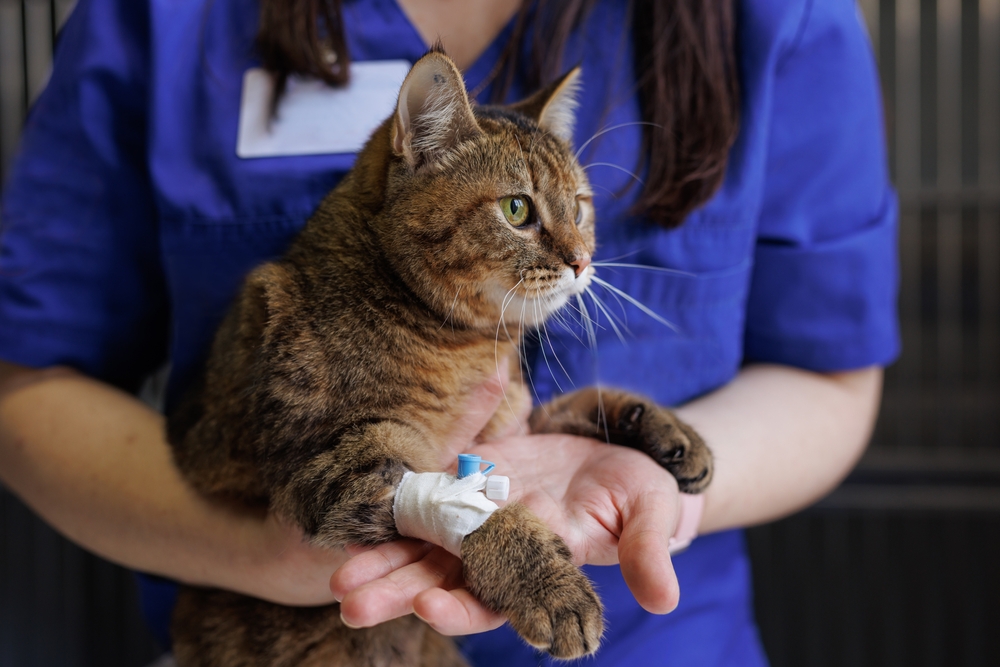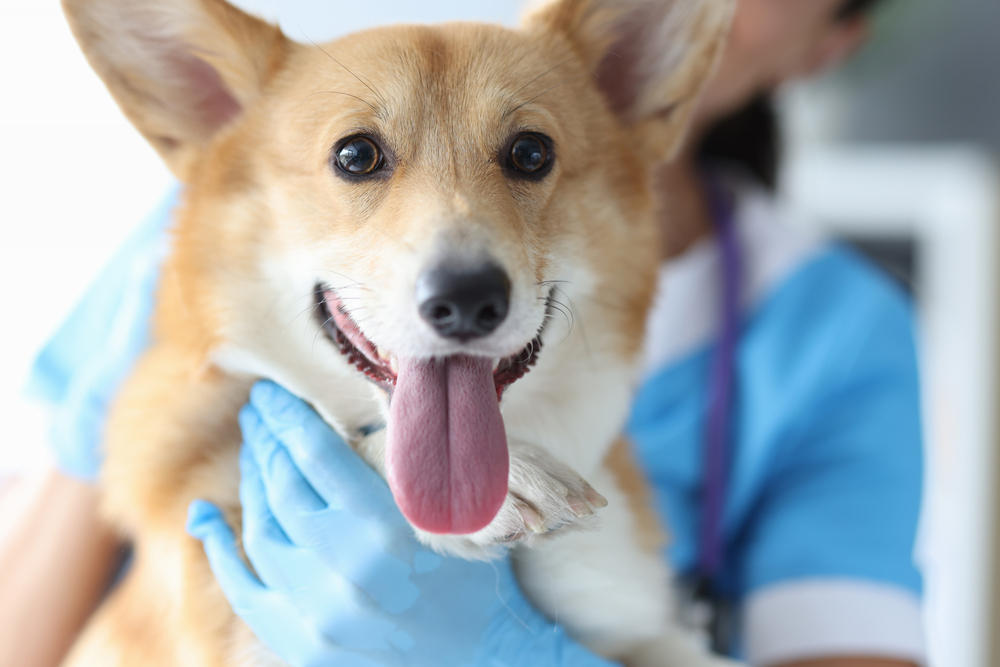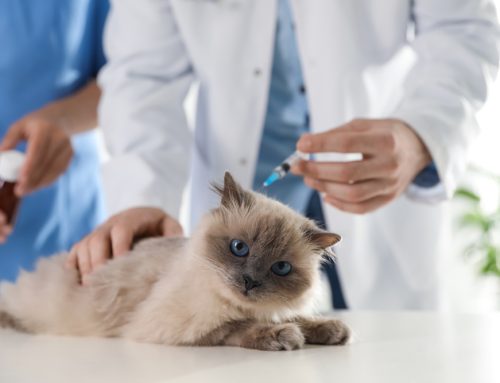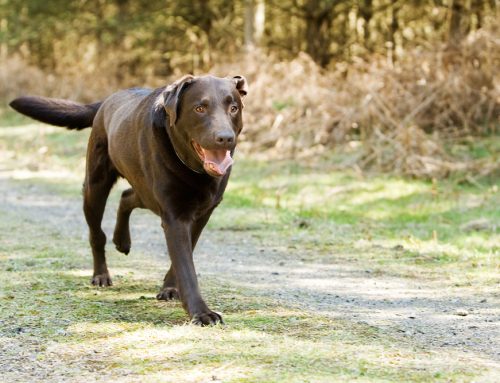Understanding Hypothyroidism and Hyperthyroidism in Pets: Essential Guide
Understanding your pet’s health is crucial, especially with conditions like hypothyroidism and hyperthyroidism that can significantly impact their quality of life. At Boca Midtowne Animal Hospital in Boca Raton, FL, we specialize in diagnosing and treating these thyroid disorders to ensure your pet receives optimal care.
What Are Hypothyroidism and Hyperthyroidism?
Hypothyroidism in Dogs
Hypothyroidism in dogs occurs when the thyroid gland produces insufficient thyroid hormone, affecting metabolism. It is most common in medium to large breeds and typically appears in middle-aged dogs. Key symptoms include:
Lethargy: Reduced activity and increased sleepiness.
- Unexplained Weight Gain: Weight increase without dietary changes.
- Fur Loss and Dull Coat: Skin issues such as dryness and increased infection risk.
- Intolerance to Cold: Seeking warmth or shivering more easily.
Medically, hypothyroidism often results from autoimmune thyroiditis or idiopathic atrophy of the thyroid gland. Untreated, it can lead to serious complications like heart problems.
Hyperthyroidism in Cats
Hyperthyroidism is most commonly seen in older cats, resulting from excess thyroid hormone production and increased metabolism. Symptoms to watch for include:
- Weight Loss Despite Increased Appetite: Eating more but losing weight.
- Hyperactivity: Increased restlessness and irritability.
- Increased Thirst and Urination: Signs of heightened metabolic activity or secondary kidney issues.
- Elevated Heart Rate: Risk of hypertrophic cardiomyopathy, a serious heart condition.
For more details, read about feline hyperthyroidism on the AAHA website.
Diagnosing Thyroid Problems in Pets
Symptoms and When to Visit Boca Midtowne Animal Hospital
Consider a thyroid check for your pet if you notice:
- Unusual Weight Changes: Sudden weight gain or loss.
- Changes in Appetite or Thirst: Unexplained increases or decreases.
- Altered Energy Levels: Either lethargy or hyperactivity.
- Behavioral Changes: Anxiety or depression-like symptoms.
These signs warrant a visit to our clinic for a thorough evaluation. Explore our veterinary services.
How Veterinarians Diagnose These Conditions
Diagnosis typically involves:
- Comprehensive Blood Tests: Assessing thyroid hormone levels like T4, and sometimes T3 and TSH.
- Imaging Studies: Ultrasound or X-rays evaluate the thyroid gland’s size and structure.
- Thyroid Scintigraphy: Visualizes thyroid activity in some cases.
Early and accurate diagnosis is crucial for effective treatment, and our staff at Boca Midtowne is equipped with the latest technology to ensure your pet receives the necessary care.
Treatment Options for Hypothyroidism and Hyperthyroidism
Managing Hypothyroidism in Dogs
Treatment involves hormone replacement therapy with synthetic levothyroxine, typically lifelong. Regular monitoring and dosage adjustments are essential. This treatment is highly effective, enabling dogs to live normal, healthy lives.
Managing Hyperthyroidism in Cats
Treatment options include:
- Medications: Methimazole is commonly used to reduce hormone production.
- Radioactive Iodine Therapy: Targets overactive thyroid tissue effectively.
- Surgical Removal: Thyroidectomy may be performed, though less common due to other effective treatments.
- Dietary Management: Special low-iodine diets can help manage hormone levels.
Living with a Pet Diagnosed with a Thyroid Disorder
Daily Care and Diet Considerations
Managing a pet with a thyroid disorder involves:
- Tailored Diet Plans: Develop a nutritional plan with your veterinarian.
- Regular Exercise: Helps manage weight and improve overall well-being.
- Routine Medication: Consistent administration is crucial for managing the condition.
Following your veterinarian’s recommendations closely is important for effective management.
Monitoring and Long-Term Health
Regular veterinary check-ups are vital to monitor health and adjust treatments as necessary. Consistent care can help your pet live comfortably despite thyroid issues.
Emergency Situations
Recognizing a thyroid-related emergency is critical. In hypothyroid dogs, signs like extreme lethargy or sudden collapse require immediate attention, as they could indicate myxedema coma. In hyperthyroid cats, acute heart failure signs, such as difficulty or open-mouth breathing, are emergencies needing urgent care.

Boca Midtowne Animal Hospital: Your Partner in Pet Health
Why Choose Us for Your Pet’s Thyroid Issues
Our clinic is AAHA accredited, providing top-tier medical care in a stress-free environment. Learn more about our AAHA accreditation. We practice Fear-Free techniques to ensure your pet’s visit is comfortable. Discover our Fear-Free practices.
Early recognition of symptoms and professional veterinary consultation are key to managing thyroid disorders effectively. At Boca Midtowne Animal Hospital, we are committed to providing the best care for your pet’s specific needs. Visit our FAQ page for more information or schedule an appointment.








Leave A Comment